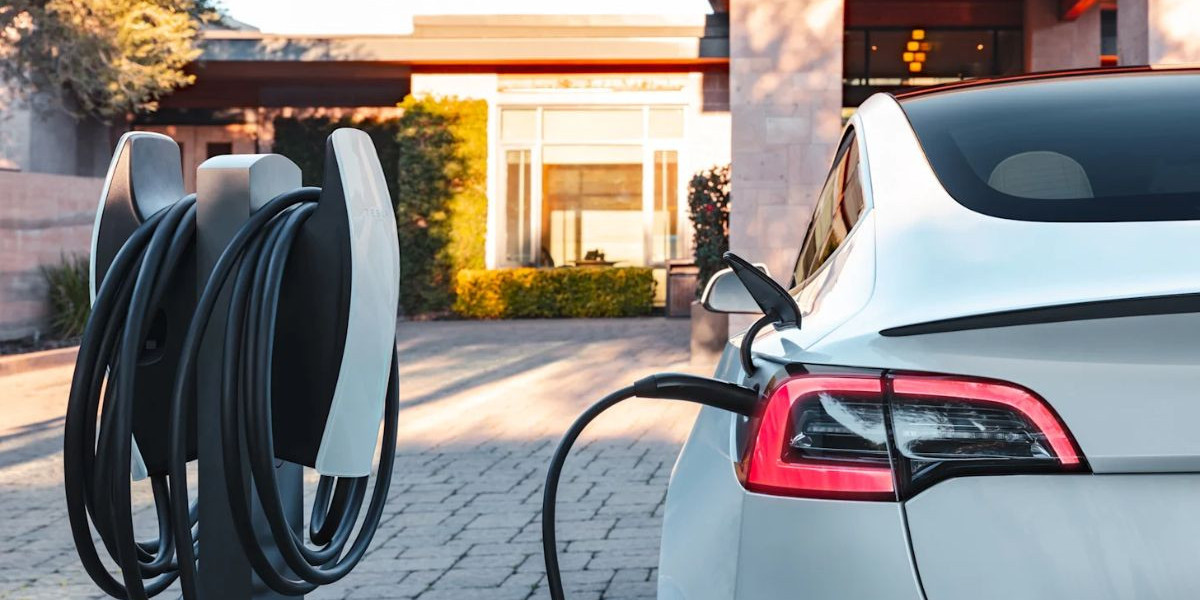As more drivers switch to electric for environmental and economic reasons, having a reliable EV charging station at home is becoming a necessity. Installing an EV charger not only adds convenience but also maximizes the efficiency and cost savings that electric vehicles offer.
This detailed guide explores the benefits of home EV charger stations, the installation process, and why professional help is essential. Whether you’re considering an EV purchase or ready to upgrade your charging setup, understanding these factors will help you make informed decisions.
The Growing Importance of Home EV Charging Stations
With increasing awareness of climate change and rising fuel prices, electric vehicles are gaining popularity worldwide. However, unlike traditional cars that refuel at gas stations, EVs require access to charging infrastructure. While public chargers are expanding, most EV owners prefer the convenience of charging at home overnight.
Home EV charging stations offer numerous advantages:
Cost Savings: Charging at home, especially with off-peak electricity rates, is significantly cheaper than using public stations or gasoline.
Convenience: You start each day with a full battery without detours to public chargers.
Faster Charging: Level 2 chargers installed at home provide faster charging speeds compared to standard outlets.
Increased Property Value: EV-ready homes are becoming desirable in the real estate market.
Types of EV Chargers for Home Use
There are primarily two types of EV chargers suitable for residential installation:
Level 1 Chargers
Use a standard 120-volt household outlet.
Provide slow charging (~4-5 miles of range per hour).
Suitable for plug-in hybrids or occasional charging needs.
No special installation needed, plug-and-play.
Level 2 Chargers
Use a 240-volt power source, similar to large appliances.
Much faster charging (~25-30 miles of range per hour).
Ideal for daily charging of fully electric vehicles.
Requires professional installation by a qualified electrician.
Why Choose Level 2 Chargers?
For most EV owners, Level 2 chargers are the preferred choice because they significantly reduce charging time. Overnight charging is often sufficient to replenish a full charge for daily driving needs. Level 2 chargers also support advanced features like:
Scheduling charges during off-peak hours to save on electricity costs.
Monitoring energy usage via smartphone apps.
Integration with home energy management systems.
Preparing Your Home for EV Charger Installation
Installing a Level 2 EV charger involves several preparations and considerations:
Electrical Panel Capacity
An electrician must assess whether your existing electrical panel can support the charger’s load without overloading circuits. In some cases, panel upgrades or sub-panels may be necessary.
Circuit Installation
A dedicated circuit is required to connect the charger to your electrical panel to prevent interference with other appliances and to comply with electrical codes.
Location and Mounting
The charger is usually installed close to where the vehicle will be parked, such as the garage or driveway. Mounting options include wall-mounted or pedestal chargers.
Permits and Inspections
Local regulations may require electrical permits and inspections to ensure safety and code compliance. Professional electricians handle this process smoothly.
The Professional Installation Process
Hiring a licensed and experienced electrician for EV charger installation is essential. The process typically includes:
Initial Assessment: The electrician visits your home to evaluate your electrical system, panel capacity, and optimal charger location.
Electrical Work: Installing the dedicated circuit and mounting the charger.
Permitting: Handling all required permits and coordinating inspections.
Testing and Commissioning: Ensuring the charger is functioning safely and efficiently.
User Education: Demonstrating charger use and safety tips.
DIY installation is not recommended due to the electrical complexity, safety risks, and code compliance issues.
Financial Incentives and Rebates
Many governments, utility companies, and municipalities offer incentives to encourage EV adoption and home charger installation. These may include:
Tax credits or deductions.
Rebates on equipment purchase or installation services.
Special electricity rates for EV charging.
Checking available incentives in your area can significantly reduce upfront costs.
Safety Considerations for Home EV Chargers
Safety is paramount when dealing with high-voltage electrical equipment. Key safety tips include:
Ensure charger installation complies with local electrical codes.
Use certified EV chargers with built-in safety features.
Regularly inspect charger cables and connectors for wear.
Avoid using extension cords or adaptors with your charger.
Keep the charging area dry and free of obstructions.
Benefits Beyond Convenience
Besides the obvious convenience and cost savings, home EV chargers contribute to a greener planet by promoting the use of clean energy. When paired with solar panels or renewable energy sources, EV charging can be virtually carbon-neutral. This integration further increases energy independence and sustainability.
Choosing the Right Electrician for Your EV Charger Installation
Selecting a qualified electrician is critical to ensure a safe, efficient, and code-compliant installation. Look for:
Experience with EV charger installations.
Proper licensing and insurance.
Good customer reviews and references.
Knowledge of local regulations and permitting.
Transparent pricing and warranty offers.
In Langley, trusted electrician Langley services specialize in EV charging solutions with professional expertise and customer support.
Conclusion
Investing in a home EV charging station is a smart choice for current and future electric vehicle owners. It offers unmatched convenience, cost savings, and environmental benefits. Understanding the installation process and working with skilled electricians ensures your EV charging system is safe, reliable, and optimized.








